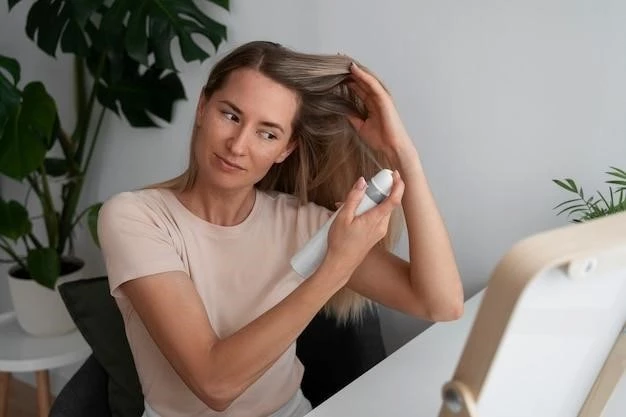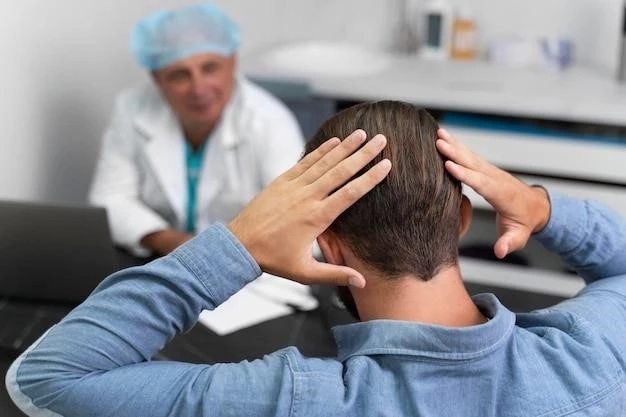Introduction
Acquired Progressive Kinking of the Hair (APKH) is a rare disorder affecting hair appearance and texture‚ characterized by a curly‚ frizzy‚ and lusterless aspect typically seen on the scalp. Various studies and cases shed light on this unique hair condition.
Definition and Overview of Acquired Progressive Kinking of the Hair
Acquired Progressive Kinking of the Hair (APKH) is a rare hair disorder characterized by the appearance of lustreless‚ curly‚ frizzy‚ and coarse hair‚ particularly affecting the frontal‚ temporal‚ and vertex regions of the scalp. Eyelashes and hair pigmentation may also be impacted by this condition. Typically onset during adolescence‚ APKH can resemble pubic hair in texture and color‚ with affected hairs showing twists‚ kinks‚ and other structural abnormalities under microscopic examination.
Clinical Presentation
Acquired Progressive Kinking of the Hair (APKH) typically manifests as curly‚ frizzy‚ and lusterless hair‚ with distinct changes in texture and appearance on specific scalp regions‚ often resembling pubic hair characteristics.
Symptoms and Characteristics
APKH presents with an array of symptoms‚ including the development of curly‚ frizzy‚ and lusterless hair on specific areas of the scalp‚ often resembling pubic hair in texture and appearance. The affected hair may exhibit twists‚ kinks‚ and structural abnormalities‚ leading to changes in color and texture. Histological examinations often reveal flattened hair shafts with partial twists at irregular intervals‚ shedding light on the distinct features of this rare hair disorder.
Factors like changes in hair follicle shape during miniaturization or irregularities in mitosis within the hair bulb may be implicated in the development of Acquired Progressive Kinking of the Hair (APKH). Research also suggests associations with specific genetic and environmental factors influencing hair structure and growth.
Possible Triggers and Associations
Factors like changes in hair follicle shape during miniaturization or irregularities in mitosis within the hair bulb may be implicated in the development of Acquired Progressive Kinking of the Hair (APKH). Research also suggests associations with specific genetic and environmental factors influencing hair structure and growth.
Acquired Progressive Kinking of the Hair (APKH) diagnosis involves examination of hair structure and growth patterns. Clinical assessment‚ including histological analysis and microscopic observations of hair shafts‚ aid in identifying this rare hair disorder.
Medical Evaluation and Diagnostic Criteria
Diagnosis of Acquired Progressive Kinking of the Hair (APKH) involves examining the hair structure closely. Clinical evaluations‚ including histological analysis and microscopic observations‚ play a crucial role in identifying this unique hair disorder‚ aiding in distinguishing it from other hair conditions.
Treatment for Acquired Progressive Kinking of the Hair (APKH) focuses on addressing the structural abnormalities of hair‚ potentially involving interventions to restore hair texture and growth. Various management approaches aim to improve the appearance and quality of affected hair‚ with therapeutic options tailored to individual cases based on clinical evaluations and histological findings.
Management Approaches and Therapeutic Options
Treatment for Acquired Progressive Kinking of the Hair (APKH) may involve interventions to restore hair texture and growth‚ addressing structural abnormalities. Therapeutic options focus on improving hair appearance and quality‚ tailored to individual cases based on clinical assessments and histological findings.

Case Studies
Reports describe acquired progressive kinking of the hair as a rare disorder affecting hair texture and growth patterns‚ often manifesting in a curly‚ frizzy‚ and lusterless appearance‚ with distinct structural abnormalities observed under microscopic examination.
Notable Examples of Acquired Progressive Kinking of the Hair
Acquired progressive kinking of the hair (APKH) is a rare disorder affecting hair texture and growth patterns‚ with structural abnormalities observed under microscopic examination‚ showcasing distinct features of this unique hair condition.
Research and Studies
Studies and cases highlight Acquired Progressive Kinking of the Hair (APKH) as a rare disorder impacting hair texture and growth patterns‚ with distinct features observed through clinical evaluations and histological examinations.
Current Understanding and Ongoing Investigations
The term ″Acquired Progressive Kinking of the Hair″ encompasses various conditions characterized by acquired curling of the scalp hair. Research continues to explore the underlying mechanisms and distinguish this condition from other hair disorders‚ providing insights into potential treatments and management strategies.

Prognosis and Complications
Acquired Progressive Kinking of the Hair (APKH) poses a unique challenge due to its impact on hair texture and growth patterns‚ with potential complications in managing structural abnormalities and restoring the visual aesthetic of affected hair.
Potential Outcomes and Associated Health Issues
The prognosis of Acquired Progressive Kinking of the Hair (APKH) involves managing hair texture and growth abnormalities‚ with potential complications in addressing structural changes and restoring the aesthetic appearance of the affected hair. Health issues may arise from the impact on the individual’s self-image and emotional well-being due to the unique nature of this rare hair disorder.
